Book a Free Consultation with our team today
Related Posts
Accounting for Franchises

The world of franchising offers aspiring entrepreneurs a compelling path to business ownership. You get to leverage an established brand name, proven business model, and ongoing support from the franchisor. However, franchise accounting presents unique considerations compared to traditional small businesses. Understanding these is important for franchisee success. This comprehensive guide will equip you with everything you need to know about franchise accounting.
The Basics of Franchise Accounting
At its core, accounting for franchises is similar to standard business accounting. You’ll track income and expenses, manage payroll, and generate financial statements like profit and loss statements. However, franchises incur unique fees and expenses that require special attention. Here’s a breakdown of some key terms:
- Franchise fee: This upfront payment grants the franchisee the right to operate under the franchisor’s brand. It’s considered an intangible asset and is amortised (spread out) over a specific period.
- Royalty: Franchisees typically pay an ongoing royalty fee, usually a percentage of their revenue, to the franchisor.
- Marketing fees: Franchises will require you to contribute to marketing efforts. These fees can be a fixed amount or a percentage of sales.
These ongoing costs, along with startup costs like equipment and inventory, necessitate careful financial planning and management.
Core Accounting Tasks for Franchisees
Now that you grasp the importance of franchise accounting, let’s get into some accounting tasks crucial for franchisees:
- Accurate bookkeeping: Maintaining meticulous bookkeeping records is essential for accurate financial reporting. This includes recording all income and expenses, payroll, and franchise-specific fees.
- Cash flow management: Cash flow is the lifeblood of any business, and franchises are no exception. A franchise accountant can help you manage cash flow effectively by forecasting future income and expenses.
- Financial reporting: Timely and accurate financial reports are vital for communicating with the franchisor, securing loans, and making informed business decisions. Your accountant can ensure your reports comply with franchise agreement requirements.
Franchise accounting software can streamline these tasks and make your life easier. However, hiring a professional accountant with franchise experience is an invaluable investment for long-term success.
Unique Fees and Expenses in Franchises
As mentioned earlier, franchises involve unique fees and expenses not encountered in traditional businesses. Here’s a closer look:
- Marketing fees: As part of a franchise network, you contribute to collective marketing efforts. These fees can be a fixed amount or a percentage of your sales.
- Ongoing training: Franchisors often provide ongoing training for franchisees and their staff. These training costs can be significant.
- Royalty fees: Royalty fees are a percentage of your gross sales paid to the franchisor as ongoing compensation for the use of their brand and system.
Understanding these recurring expenses is necessary for calculating profitability and making sound financial projections.
How a Franchise Accountant Can Help You
Beyond the core accounting tasks, a franchise accountant offers a multitude of benefits, including:
- Tax planning: Tax planning for franchisees can be complex due to amortisation deductions and specific industry regulations. A franchise accountant can ensure you take advantage of all available tax benefits.
- Business management: Running a franchise requires strong business management skills. Your accountant can provide guidance on budgeting, financial forecasting, and cost control.
- Industry expertise: Franchise accountants possess a deep understanding of the franchise industry. They can benchmark your performance against industry standards and identify areas for improvement.
Why Franchise Accounting Requires a Specialist
While the basics of accounting remain the same, franchise accounting demands a specialised skillset. Here’s why:
- Understanding franchise agreements: Franchise agreements are complex legal documents that outline fees, royalties, and reporting requirements. A franchise accountant can decipher these agreements and ensure your accounting practices comply.
- Tax planning: Franchise accounting and tax considerations are intertwined. Franchise tax deductions for amortisation and royalty fees can be complex. A franchise accountant can help you maximise tax benefits.
- Tracking key performance indicators (KPIs): Franchisors often track specific KPIs to measure franchisee performance. A franchise accountant can help you monitor these metrics and ensure your business stays on track.

Conclusion
The world of franchising offers a wealth of opportunity, but understanding the financial complexities requires specialised knowledge. By understanding franchise accounting fundamentals and the value a franchise accountant brings, you’re well on your way to achieving franchisee success.
A franchise accountant becomes your trusted advisor, ensuring your financial house is in order. They’ll help you manage cash flow, comply with franchise agreements, and maximise tax benefits. Franchise accounting expertise empowers you to make informed decisions, grow your business, and ultimately thrive within the franchise network.
Are you ready to take the next step? Contact us today for a free consultation and learn how our team of franchise accounting experts can help you get started on the right foot. Don’t let accounting challenges hinder your entrepreneurial journey. Invest in your success with The Franchise Accountants accounting services.
FAQS
Q: What is franchise accounting?
A: Franchise accounting is a specialised branch of accounting that focuses on the unique financial aspects of owning and operating a franchise business.
Q: Why is accounting for franchises different from regular business accounting?
A: Accounting for franchises involves specific considerations such as royalty fees, marketing fees, and other unique expenses that are not typically found in traditional small business accounting.
Q: What are some key accounting tasks for franchise owners?
A: Some essential accounting tasks for franchise owners include tracking cash flow, managing bookkeeping, preparing tax returns, and analysing key performance indicators to monitor business performance.
Q: How can franchise owners ensure proper financial management?
A: Franchise owners can ensure proper financial management by hiring a skilled franchise accountant, staying organised with their accounting and bookkeeping records, and seeking professional advice when needed.
Q: What are the important considerations when buying into a franchise?
A: When buying into a franchise, it's important to understand the startup costs, royalty fees, and other financial obligations involved. Proper due diligence and financial planning are crucial before making a decision.
Q: How can franchise owners avoid costly accounting mistakes?
A: Franchise owners can avoid costly accounting mistakes by staying on top of their financial tasks, seeking legal advice when needed, and investing in proper training or software to manage their accounting efficiently.
Q: How can accounting for a franchise help in business growth?
A: Proper accounting for a franchise can provide valuable insights into the financial health of the business, identify areas for improvement, and help in making informed decisions to grow the franchise successfully.
The Franchise Accountants
We help franchise owners make better business decisions. Whether you’re buying your first franchise or looking to improve your current performance, our specialist franchise accountants can help you.

